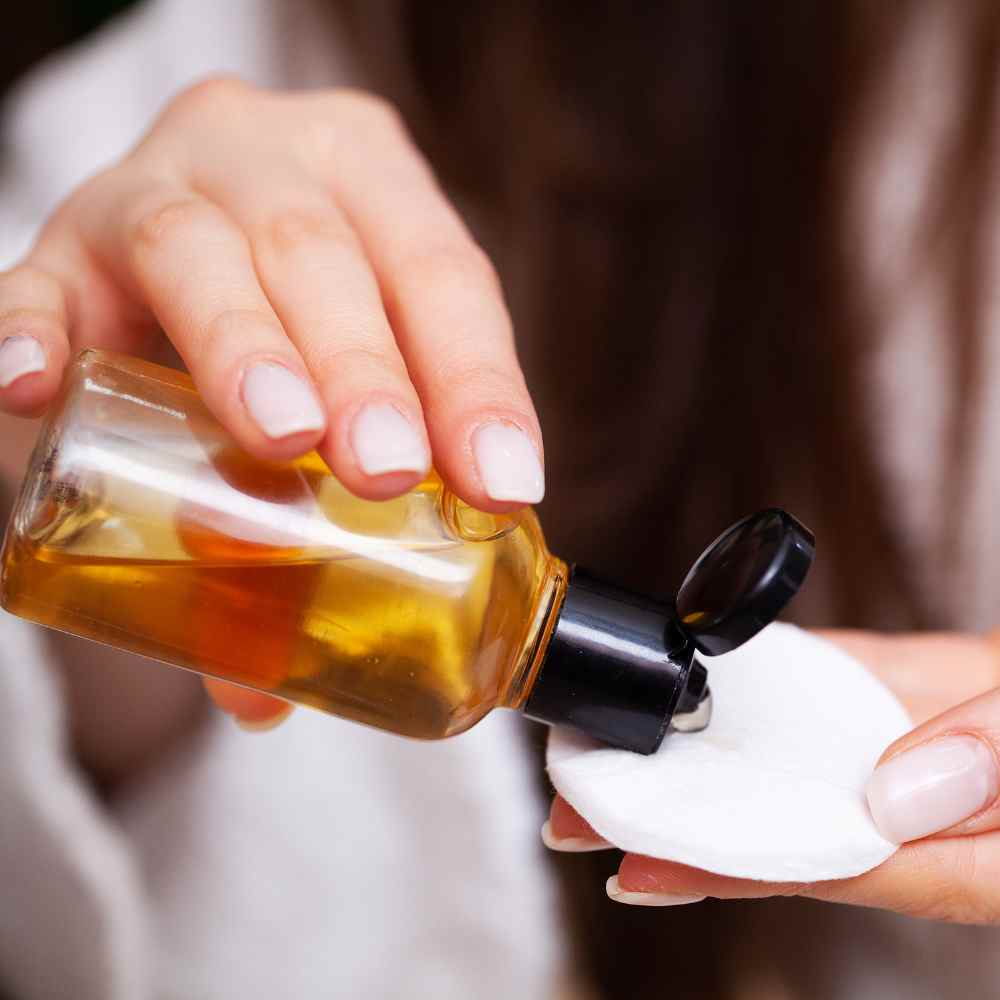
Does Face Toner Expire? When to Toss Your Tired Toner!
Have you ever been scrolling through your skin care stash, only to pause and question the expiration date on that bottle of face toner? You’re not alone!
In fact, if you’ve found yourself scratching your head over toner shelf life then today is your lucky day. We’re here to discuss toner expiration dates, plus give you some helpful tips on how to store it correctly so as to avoid any unpleasant surprises down the line.
Whether you prefer a rosewater mist or a glycolic acid toner, we have all the answers about when and where you should be keeping your trusty bottle of face toner.
Let us take away any confusion with this insightful post - prepare for an informative ride into toner town!
What Ingredients Do Skin Toners Contain?
A toner is an essential part of any skincare routine, but many of us don’t know what actually goes into these mysterious bottles. Let’s take a closer look at the ingredients found in your favorite toners.
First and foremost, most toners contain some form of alcohol. This serves as an antiseptic to clean out pores and kill bacteria while balancing pH levels.
The type of alcohol used will vary from product to product and could be anything from ethanol to SD Alcohol 40-B or denatured alcohols such as propylene glycol.
In addition, you may also find various astringent agents which help remove excessive oiliness from skin surface.
Common examples include witch hazel extract, camphor, menthol, arnica flower extract, or hamamelis water (made with the bark/leaves/twigs of a different plant). While these can make the skin feel tight upon application they do not cause dehydration so fear not!
Antioxidants are important for combating skin damage caused by free radicals; vitamin C (L-ascorbic acid) is perhaps one of the most common antioxidant ingredients in face toners due its ability to brighten overall complexion by fading dark spots, neutralizing oxidative stressors as well as stimulating collagen production for firmer looking skin over time.
Other antioxidants that may be present include green tea extracts and ferulic acid - among many others.
Finally humectants such as hyaluronic acid draw moisture into the epidermis plus some soothing herbs like aloe vera can give further hydration benefits without irritating sensitive areas on your face - all in all making sure that your skin remains healthy and balanced.
Exfoliating toners can contain ingredients such as glycolic acid or salicylic acid. If they do contain these ingredients, it will be clearly labeled on the toner bottle.

Factors Affecting Toner Expiration
Several factors can affect the expiration of face toners. Exposure to air, light, heat, and moisture can accelerate the degradation of the ingredients and compromise the product's effectiveness.
Additionally, the formulation and preservatives used in the toner can influence its shelf life.
Natural or organic toners without synthetic preservatives may have a shorter shelf life compared to those with stronger preservative systems such as acne products.
Shelf Life of Face Toners
So do toners expire? Yes! Face toners, like most skincare products like makeup and expired sunscreen, have a limited shelf life. The shelf life of toners typically ranges from six months to two years, depending on the formulation and ingredients. Usually a good guideline is up to one year.
Manufacturers usually indicate the product's shelf life on the packaging, often in the form of a symbol of an open jar with a number followed by "M" (months) or an expiration date.
The following TikTok video shows where you can find this information on your toner bottle:
@vlqnkare Make sure to check the expiration date of your products! I know it’s so easy to use some products for a very long time especially cause people buy so many things and they just go back and forth from five different sunscreens. Is it bad if you use expired products? Well, I don’t think it’s the worst and some people say it’s okay as long as you don’t actually see a problem but I would always choose not to use them!! Never compromise what you put on your skin! 🤍💚 #selfcarecheck #sunscreenshelflife #skincareshelflife #whendotheyexpire #koreanskincareproducts
♬ Loose Change - Devin Kennedy
Signs of Expired Facial Toner
Using old toner can be ineffective and may even cause skin irritation or infection.
To ensure the safety and efficacy of your toner, be aware of the signs of expiration, such as changes in color, texture, or scent.
If your toner has become discolored, developed a strange odor, or has separated into layers, it is likely expired and should be discarded.
Additionally, if you notice any skin reactions or unusual breakouts after using an expired toner, it is a clear indication that the product is no longer suitable for use.
Proper Storage and Preservation
Proper storage is essential for extending the shelf life of your toner. Here are some guidelines to help preserve its efficacy:
Keep it Sealed: Always tightly seal the toner bottle or container after each use to prevent air and moisture from entering.
Store in a Cool, Dark Place: Exposure to heat and light can accelerate the degradation process. Store your toner in a cool, dry place away from direct sunlight.
Avoid Contamination: Prevent contamination by avoiding direct contact between the toner bottle opening and your fingers. Consider using a cotton pad or a clean dropper for application.
Follow Usage Recommendations: Use the toner according to the recommended frequency and amount specified by the manufacturer. Overusing the product may deplete it faster, while underusing it can lead to accumulation and potential expiration of the remaining product.

Checking Batch Codes
Some toner manufacturers include batch codes on their packaging. These codes can provide information about the production date, manufacturing facility, and expiration date.
Online batch code checkers or contacting the manufacturer can help decode the information and determine the product's shelf life.
When to Discard Expired Toner
To ensure the best results and avoid potential problems, it is recommended to discard any toners that are past their expiration date.
Once a toner has reached its expiry date or shows signs of expiration, it is time to toss it and replace it with a fresh bottle.
What Happens if You Use Old Toner?
So, what happens if you use expired skin toner? Well, first things first - avoid it!
While there might not be any immediately visible consequences after using an expired product on your face or body (especially when it comes to products like skincare items with low concentrations of active ingredients), just know that it’s not at all hygienic or safe in the long run.
Using expired skincare can cause redness, irritation (from either bacteria present or due to preservatives which have lost their efficacy) as well as more serious issues such as toxic reaction or infection due to weakened formulas containing fewer antioxidants post expiration date. So don't risk it!
Toss Any Expired Toners
In conclusion, toners can provide amazing benefits to your skin, but only if used correctly. By understanding the signs of expiration and following proper storage techniques, you can ensure you're getting the most out of your skincare product.
It's also essential to pay attention to batch codes and discard any expired products.
Taking the time to care for your skin with quality products and preventive measures will help you achieve a glowing complexion that will last!
Cut yourself some slack and don't underestimate how far a little TLC goes when it comes to pampering your beautiful self.

















